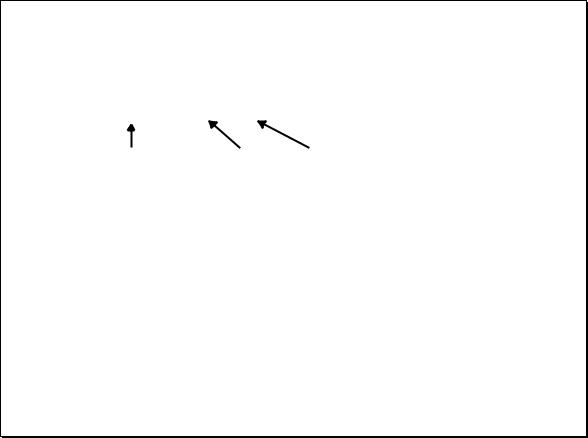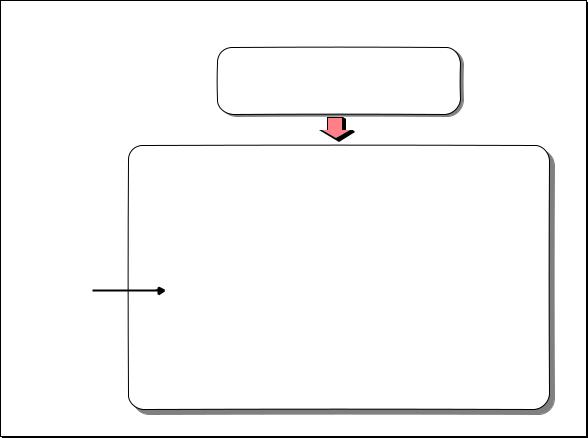
Beazley D.M.Tcl extension building with Swig
.pdf
Exception Handling
The %except directive
•Allows you to define an application specific exception handler.
•Can catch C errors or C++ exceptions.
•Fully configurable (you can define exception handlers as you wish).
%except(tcl) { try {
$function /* This gets replaced by the real function call */
}
catch(RangeError) {
interp->result = “Array index out-of-bounds.”; return TCL_ERROR;
}
}
•Exception handling code gets inserted into all of the wrapper functions.
•$function token is replaced by the real C/C++ function call.
Note:
• Exception handling is different in Tcl 7.x and Tcl 8.x
Tcl Extension Building With SWIG |
6th Annual USENIX Tcl/Tk Conference, Sept. 15, 1998 |
61 |
Notes
SWIG includes a library of exception handlers that are implemented in a portable manner. To use the library, you would simply write the following :
%include exceptions.i %except {
try { $function
}
catch(RangeError) {
SWIG_exception(SWIG_IndexError,”index out-of-bounds”);
}
}
In this case, the macro SWIG_exception() is translated into the appropriate Tcl code needed to indicate an error.

Typemaps
Typemaps allow you to change the processing of any datatype
•Handling of input/output values.
•Converting Tcl objects into C/C++ equivalents.
•Telling SWIG to use new Tcl types.
Very flexible, very powerful
•You can do almost anything with typemaps.
•You can even blow your whole leg off (not to mention your foot).
•Often a hot topic of discussion on the SWIG mailing list
Caveats
•Requires knowledge of Tcl’s C API to use effectively.
•It’s possible to break SWIG in bizarre ways.
•Impossible to cover in full detail here.
Tcl Extension Building With SWIG |
6th Annual USENIX Tcl/Tk Conference, Sept. 15, 1998 |
62 |
Notes

Typemap Example
What is a typemap?
• A special processing rule applied to a particular (datatype,name) pair.
double spam(int a, int);
(double,”spam”) (int,”a”) (int,””)
•Can define rules for specific (datatype,name) pairs
•For example
%typemap(tcl,in) int a {
if (Tcl_GetInt(interp,$source,$target)==TCL_ERROR) return TCL_ERROR;
printf(“a = %d\n”, $target);
}
•This C code gets inserted into the wrapper functions created by SWIG.
•$source and $target are tokens that get replaced with C variables.
•The “in” typemap is used to convert arguments from Tcl to C.
Tcl Extension Building With SWIG |
6th Annual USENIX Tcl/Tk Conference, Sept. 15, 1998 |
63 |
Notes

How Typemaps Work
%typemap(tcl,in) int a {
... see previous slide ...
}
double spam(int a, int);
static int _wrap_spam(ClientData clientData, Tcl_Interp *interp, int argc, char *argv[]) {
double _result; int _arg0;
int _arg1;
typemap
}
clientData = clientData; argv = argv; if ((argc < 3) || (argc > 3)) {
Tcl_SetResult(interp, "Wrong # args. spam a { int } ",TCL_STATIC); return TCL_ERROR;
}
{
if (Tcl_GetInt(interp,argv[1],_arg0)==TCL_ERROR) return TCL_ERROR;
printf("a = %d\n", _arg0);
}
_arg1 = (int ) atol(argv[2]); _result = (double )spam(_arg0,_arg1);
Tcl_PrintDouble(interp,(double) _result, interp->result); return TCL_OK;
Tcl Extension Building With SWIG |
6th Annual USENIX Tcl/Tk Conference, Sept. 15, 1998 |
64 |
Notes

Typemap Methods
Typemaps can be defined for a variety of purposes
•Function input values (“in”)
•Function output (“out”)
•Default arguments
•Ignored arguments
•Returned arguments.
•Exceptions.
•Constraints.
•Setting/getting of structure members
•Parameter initialization.
The SWIG Users Manual has all the gory details.
The bottom line
•Typemaps are very powerful and very useful.
•Can customize SWIG in a variety of ways.
•But you have to know what you’re doing.
Tcl Extension Building With SWIG |
6th Annual USENIX Tcl/Tk Conference, Sept. 15, 1998 |
65 |
Notes

Limitations
Tcl Extension Building With SWIG |
6th Annual USENIX Tcl/Tk Conference, Sept. 15, 1998 |
66 |

SWIG Limitations
Not a full C/C++ parser
•C++ function overloading.
•C++ operator overloading.
•Namespaces.
•Templates.
•Variable length arguments.
•Pointers to functions and pointers to arrays.
•Pointers to member functions.
•Problems with const.
•Can sometimes be difficult to track down parsing and code generation bugs.
•May be very hard to use with very complex header files.
May experience trouble with very large packages
•C++ systems with hundreds of header files.
•May generate an excessive amount of code (tens to hundreds of thousands of lines)
Tcl Extension Building With SWIG |
6th Annual USENIX Tcl/Tk Conference, Sept. 15, 1998 |
67 |
Notes

SWIG Limitations (cont...)
Integration with Tcl
•SWIG tries to keep a strict separation between C/C++ and Tcl.
•Appropriate for many applications.
•However, you might want more flexibility or control.
•SWIG typemaps can sometimes be used.
•Other Tcl extension building tools may work better--especially with object-oriented systems.
•SWIG can be used with other extension tools if you know what you are doing.
Tcl Extension Building With SWIG |
6th Annual USENIX Tcl/Tk Conference, Sept. 15, 1998 |
68 |
Notes

Application Troubles
Not all C/C++ applications work well in a scripted environment
•May crash.
•May operate in an unreliable manner.
•Very complex C++ systems may be very problematic (compilation, linking, etc...)
•An API may be poorly suited to scripting (i.e., difficult to use).
•Memory management woes.
Applications can also do bad things
• Example :
char *strcpy(char *s, const char *ct);
• Using this function from Tcl (as is) will likely corrupt the Tcl interpreter and crash. (Left as an exercise to the reader to figure out why).
Namespace clashes
•C/C++ functions may clash with Tcl commands.
•May clash with the C/C++ implementation of Tcl or other extensions.
Tcl Extension Building With SWIG |
6th Annual USENIX Tcl/Tk Conference, Sept. 15, 1998 |
69 |
Notes
An excellent overview of building C++ Tcl extensions is available at
http://zeus.informatik.uni-frankfurt.de/~fp/Tcl

Things to Keep in Mind
Extension building tools don’t necessarily result in a good interface
•Trying to wrap a raw header file is not guaranteed to work.
•Wrapping every function in a package is rarely necessary.
•A little planning and design go a long way.
SWIG may be inappropriate for very large projects
•Designed to be relatively informal and easy to use.
•Informality may be the exact opposite of what you want on a large project.
Shop around
• We are fortunate that Tcl is so easy to extend and that there are many tools.
There is no silver bullet
Tcl Extension Building With SWIG |
6th Annual USENIX Tcl/Tk Conference, Sept. 15, 1998 |
70 |
Notes
